- Home
- Roger Taylor
The Fall of Fyorlund [Book Two of The Chronicles of Hawklan] Page 24
The Fall of Fyorlund [Book Two of The Chronicles of Hawklan] Read online
Page 24
Still, it was of no matter. He was needed now, and his co-operation was fortuitous whatever its motive. Later, he would not be needed and his motivation would be irrelevant. That the mass of time-consuming paperwork, meetings and petty civic duties—‘For the sake of appearance, Lord', twitch—was being created by Dilrap to distract him, never occurred to Dan-Tor.
Reluctantly he turned to the latest batch of papers that Dilrap had left for him. The first was a thick document concerning the ‘Rights and Privileges of Honourable Prisoners'.
'It's a very long time since any Lords have been arrested, Lord,’ Dilrap had said. ‘But it has happened in the past, and provision has been made within the Law for such a contingency.’ Dan-Tor had looked skyward and Dilrap had quailed.
'Lord,’ he said, in a great flurry of jerks and twitches, ‘if I know of this, then those looking to the Lords’ interest will know of it. If not now, then soon.'
'They have no one looking to their interests, Honoured Secretary,’ Dan-Tor replied, tight-lipped. ‘Save us. They're held by Special Edict. They see only their guards, and any of their friends who dare to show their faces see only yourself—or me.'
'This is true, Lord, but...’ Dan-Tor drew in a loud breath and stood up very straight. Dilrap babbled out his reservations frantically. ‘Lord. The Special Edict is an Edict of Examination, it relates only to their detention. A trial must be held eventually. They'll have friends who'll emerge when that happens, and those friends will be looking at the Law now, with that end in mind. If we're faulted on small details there's no telling what it might lead to. The people are...'
'The people are what?’ demanded Dan-Tor stonily.
Dilrap cast about, becoming progressively more flustered as Dan-Tor's eyes looked through him. ‘Uncertain,’ he said at last. ‘Uncertain.'
Dan-Tor did not speak. Dilrap became confidential, shifty almost. Carefully not looking at the Lord, he said, ‘The four Lords ... traitors, have many friends and are loved by many of the people, albeit misguidedly. The demand for an early trial will persist—grow, even.’ He lifted his eyes and gazed straight at Dan-Tor. ‘And only a trial will expose the truth of their treachery. We must observe the forms of the Law. If we don't, then we undermine our case and it will be doomed from the start. You know what these lawyers are like. If then we detain the Lords, who knows what the people might do. And if the Lords are allowed free...’ He left the implications unstated.
Dan-Tor felt Dilrap's forked stick pinning him to the ground. The serpent pinned by the worm. But it would be vain to struggle. The Mathidrin could perhaps control rioting within Vakloss and some of the other large towns, but there were too few to control the whole country, and the news of an illegal detention would bring an armed and angry population down on Vakloss like a tidal wave. It was not in his interests to have Fyorlund torn by civil strife. Far better that the people be gradually wooed to him. Let the slow corruption continue. The King's contribution must be ridden out peacefully.
'We mustn't cede these traitors their victory by tempting the people to rash action or by foolishly ensuring their release,’ he said coldly. ‘Let me have details of these provisions for the arrest of Lords.'
Dilrap risked a brief knowing smile and, hitching his gown on to his shoulders, bowed and retreated. As he reached the door, Dan-Tor pointed a long brown finger at him.
'Briefly, Dilrap. Briefly,’ he said.
Now Dan-Tor stared at the results of this admonition. Sheet upon sheet of closely written script, laden with column annotations, footnotes, cross-references and, at a quick glance, some of the densest legal prose that the Law of Fyorlund could produce. He would have to read it of course. Dilrap's observations had been too accurate for him to ignore. He glanced irritably at the pale light washing in through the window and clicked a globe into life. Its glare dimmed the evening sky outside and cast harsh shadows around his room. Their clarity relaxed him.
Far below, in the darkening streets, a few people noticed the harsh white light appear in the tower wall, like an inhuman eye peering out over the City. Those who knew it for what it was were divided: some saw it as the Lord Dan-Tor working tirelessly to assuage the confusion and disorder that seemed to be sweeping the country, while others, a touch wiser, presumed he was plotting yet more schemes and devilment to undermine the ancient way of life of the Fyordyn. Both camps seemed to find less and less on which they could stand and debate rationally, let alone agree. Both noted a sourness and anger seeping into their lives that they had never known before, and each was inclined to look to the other for the cause.
Further below still, the four Lords indeed plotted and schemed. Their brief foray from their cell, especially that of Hreldar and Darek, had told them where they were, but that knowledge was of limited value. It served mainly to confirm that, to escape their prison, they would need good fortune and more than a little help from the outside.
After their initial euphoria, they lapsed a little into a darker mood as they pondered the problems ahead of them. They found it interesting that there had been no repercussions from their escapade. Hreldar, with Darek's help, had made a slow and convincing recovery once he had reached fresh air, and had shown no further symptoms since, but Arinndier now made a conspicuous point of looking suspiciously at all their food, and of talking to the guards who brought it. After a while the chore devolved on to a single kitchen servant who bore Arinndier's scrutiny with a surly indifference.
Eldric was of the opinion that the incident had not risen very far up the ranks of the Mathidrin. ‘They made a mistake, and they don't want Dan-Tor to find out about it, I'm sure,’ he said. ‘I think we've found an interesting weakness in our jailers with our little piece of theatre.'
Arinndier raised his eyebrows to request an elaboration of this remark.
Eldric obliged. ‘These people aren't like our High Guards. They've not entered a service because of duty or tradition. They've entered it for some form of personal gain. Wherever they've been dredged from they've got all the earmarks of ex-prisoners and misfits, and there's more than a few foreigners among them, judging by some of the accents we've heard. I'll wager that such honour as they have is easily purchased.'
'So?’ queried Arinndier.
'So they play barrack-room politics, Arin,’ continued Eldric. ‘They'll form cliques and factions. War amongst themselves for kudos in the eyes of their superiors.'
Arinndier was unimpressed. ‘Our own people do that, Eldric,’ he said.
Eldric waved a dismissive hand. ‘Yes, yes,’ he conceded. ‘But on the whole they put their service before themselves and, if anything serious happens, they'll come forward and admit it.’ He levelled a probing finger. ‘Dan-Tor never heard about what we did. We'd have been moved or separated by now if he had. Someone, somewhere, stopped the news going further.'
'So what?’ Arinndier maintained his indifference. Eldric scowled and Arinndier looked insincerely apologetic.
'Any soldier with a grain of sense, Arin, would know that what we did should've been reported right up to the top. It was unusual and highly suspicious behaviour.’ He sat down by Arinndier and tapped his arm significantly. ‘They didn't even send so much as a horse healer to look at Hreldar after he'd started to look well again.’ He paused. ‘They don't trust their superiors. They're frightened. Either of punishment or lack of advancement. But whatever the reason, they don't trust them.’ Arinndier sat quiet awhile considering the implications of Eldric's observations. The analysis seemed reasonable. The Mathidrin could well be disciplined by fear, or greed, while the High Guards were disciplined by respect and honour. The Mathidrin would be bound together reluctantly while the High Guards sustained one another willingly.
He nodded. ‘So we learn what we can about each one individually. Encourage them in gossip. Bind them with petty corruptions where we can.'
'Exactly,’ said Eldric, clapping his hands together. ‘Play their own game. We know where we are now. We know our well-being's a matter
of some concern to them. Let's find out more about who holds us. Let's start a little more rot growing in the roots of these creations of Dan-Tor's.'
Above them, the City continued its uneasy life in the mellow summer gloaming, until the street globes burst abruptly into life and washed away the soft shadows with their harsh light. It was a regular evening occurrence greeted by some with relief and by others with irritation. But normally, all left the streets. It was the wisest thing to do in these troubled times. The light held exposure. The dark shadows, treachery.
* * *
Chapter 29
Rede Berryn glanced out of the window at the Mathidrin patrol, then picked up a pen and began writing rapidly.
'Go and bring that Sirshiant up, Tel,’ he said, without looking up. ‘Don't rush. And look pleasantly surprised,’ he added as an afterthought.
Then to Hawklan and Isloman, ‘I can't stop them taking you, but I think I can smooth the way a little. This lad's a bit nasty, but he's more ambition than intelligence and I can usually handle him.’ He looked at the two men. ‘Stay seated until I introduce you.'
There was a discreet knock at the door and Tel-Mindor entered, followed by a sour-faced young Mathidrin officer carrying his helmet under his arm. Hawklan noted immediately that beneath the man's arrogance was an uncertain deference.
'Sirshiant...’ began the Rede as he rose carefully to greet the newcomer. Then he paused and looked conspicuously at the man's insignia. ‘I'm sorry,’ he said, smiling broadly. ‘Captain, I should say. Congratulations. When did that happen?'
The young man looked down briefly and cleared his throat awkwardly. ‘Two days ago, Rede,’ he replied. Then, deprecatingly, ‘It's only a field commission, it probably won't be confirmed, but...'
The Rede waved the disclaimer aside. ‘I'm sure it will,’ he said heartily. ‘Don't worry. Anyway, this may be your big chance. I'm very glad you dropped in.’ He proffered the note he had just written. ‘I was about to send a messenger to you with this.’ He continued speaking while the Captain was reading. ‘These two gentlemen are Isloman and the Lord Hawklan, envoys from Orthlund with papers for the Lord Dan-Tor.’ At the Rede's discreet signal, Hawklan and Isloman both stood up and bowed to the young officer, who started slightly as he looked up and felt the presence of the two men filling the room. He returned the bow hesitantly, as though unused to such niceties, and his eyes flickered from them to the paper and back to the jovial face of the Rede as if for guidance.
Again, before he could speak, the Rede plunged on, his tone concerned. ‘Unfortunately, Gister saw fit to accuse them of being bandits or something, and there's been a bit of an incident—you know what he's like—I'll tell you about it later. Happily, no real harm's been done but, while these gentlemen have very generously accepted my apologies, they're obviously anxious to have some kind of escort for the rest of their journey. Can you help ... Captain?'
The Captain congratulated himself on not having taken Gister's panic-stricken message too seriously: ‘Orthlundyn spies attacking the village'. He'd deal with that blockhead later. Whatever these two were, they were no ordinary travellers, anyone could see that. A rare fool he'd have made of himself if he'd come charging in with his full troop and arrested them. That would have put paid to his promotion beyond doubt, and probably earned him field punishment, if not worse. Interfering with a messenger to the Lord Dan-Tor! The thought of the consequences chilled him.
In his relief he quickly re-ordered his camp duty rosters. ‘Some of the men are due to go back to Vakloss in a day or so, Rede,’ he said. ‘And I have routine reports to make. I'll escort the envoys personally.’ And it'll give me a chance to keep an eye on them, just in case Gister wasn't completely wrong, came a cautionary thought.
* * * *
When a great branch is lopped from a tree, be it by man or nature, no part escapes the consequences. The weight of the remaining branches leans unbalanced and reaches down the trunk and into even the smallest hair roots. Some are bent and crushed, unable to carry their new burden, while others are stretched skyward and torn from the earth to perish. If the branch lost is large enough, the whole tree may topple almost immediately but, even if it stands, it is irrecoverably weakened. The very wound exposes the tree to the ravages of disease and predation, while the strained roots will be further damaged with each small gust of wind and fall of rain.
So it was with Fyorlund when its King suspended the Geadrol. With one stroke he severed a huge and proud limb and rocked a nation whose well-rooted stability had sustained it for countless generations. There was not one aspect of Fyordyn life that did not in some degree feel this terrible impact.
Quiet, homely people by their firesides, sharp-eyed street traders, artisans and craftsmen, farm labourers out in the countryside, servants, masters, rogues and vagabonds, all the people to whom the Geadrol and the King were distant, remote, irrelevant almost, found themselves affected in some way as the great tree rocked to find a new equilibrium, and fought to heal its wound.
The country creaked with rumour and uncertainty. Dan-Tor sank his knowledge and long-formed plans into the damaged tissues and fought off healing agents and other predators alike. The fear and uncertainty amongst the Lords and the high officials of the Geadrol and Palace leached down corrosively into the populace at large and further undermined the old stability. Dan-Tor used his Mathidrin to prod and stir where the old order seemed likely to re-establish itself, and they quoted his name and the good of the State rather than the Law, when going about his work, to further erode the worth of the old ways in the people's eyes. But his greatest weapons were doubt and distrust.
Clear vision is derived from knowledge and openness, and with clear vision Dan-Tor would be seen for what he was. Rumours of treachery and traitors, of enemies without and within, were carefully circulated and sustained, and gradually the Fyordyn lowered their gaze, and began looking at one another furtively and suspiciously. Dan-Tor smiled as he watched his prey mill around in increasingly blind confusion and as he offered his sympathetic embrace to those who turned to him in their desperation.
His way forward was by no means clear or smooth, however; opposition seemed to spring up spontaneously. But, nonetheless, it opened up before him inexorably and, with each step, his strength grew and that of his opponents diminished. He took satisfaction but little joy in what he was doing. This dabbling with the intricate trivia of human society irked him, and the demon bubbling below the surface was never far away, rising to taunt him. ‘This game's too long, too slow. Sweep these opponents away, they're but insects in your path. Bind the rest with the Old Power and raise your hands in glorious salute to the Master. Let the New Age begin now.'
He let it have its say, but rarely listened. It was the rambling of the remains of his weak and inconsistent human nature.
'It was your impatience that helped bind me in the darkness for long aeons,’ he replied. ‘You'll not betray me again.’ But the demon soothed him with its reminder of his great power and he knew its very presence indicated that the end of the path was much nearer.
Occasionally, however, he would walk the Palace battlements, staring darkly out over the City, and wonder if one of the scurrying dots below him was Hawklan, or if one of the countless rooftops was sheltering him. Then his gaze would wander out to the countryside and the mountains, and his flesh would crawl at the sight of the many hiding places that were available to the man.
You are coming to me, Hawklan, I can feel it, he would think, and then abruptly he would teeter away from the fear into a solid confidence. His spies were growing in number. It was only a matter of time before that green-eyed abomination was reported to him. Then here, in his own lair, he would lay such traps as none could avoid. ‘I'll bind you silent and unknowing. There'll be no Cadwanol to help you, or incompetent youths to thwart me with their folly. When you open your eyes, you'll gaze into those of my Master—your Master.’ He shuddered at the prospect. ‘He has arts now that you can't dream of. He g
rows stronger daily. Whoever you are, He'll bind you to His service, and you'll be happy to be so bound.'
But these occasions were rare. For the greater part of his time he steered diligently through the troublesome waves that he himself was stirring. Vakloss was full of Lords clamouring to see him about Eldric and the others. He would delay meeting any of them for as long as possible, and then would have them called in individually and unexpectedly.
The escort for the favoured Lord would be Mathidrin; polite but stone-faced. They would lead him through unfamiliar passages whose spartan and militaristic appearance were echoed by the room where he would encounter Dan-Tor. The King's physician would be effusive in his greeting and profuse in his apologies for both the delay and then the suddenness of the appointment. ‘The burdens of state impose these discourtesies on me, Lord. I'm afraid the niceties of protocol tend to be roughly used by these troublesome times,’ he would say, or some similar palliative. He would also show noticeable signs of strain and concern. The Mathidrin escort would stand close ranked behind the Lord's chair until dismissed by a reassuring gesture. This man is not one of our enemies, he is to be trusted, it would say conspicuously.
By seeing the Lords individually, Dan-Tor was able to consolidate the many rumours he was having spread about the City. He would ensure that the tale he told to each would differ in some detail, and always there would be a point at which he would lean forward and, calling the Lord by his first name, would say, ‘I tell you this for yourself alone, because I know you're to be trusted...’ Or give some other indication of a special relationship between them.
These tactics sowed subtle divisions between the Lords and heightened their growing sense of mutual distrust. The movement for the release of the four Lords and the re-establishment of the Geadrol gradually slowed down.

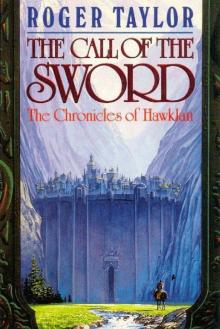 The call of the sword tcoh-1
The call of the sword tcoh-1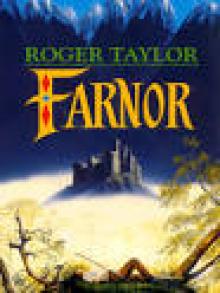 Farnor
Farnor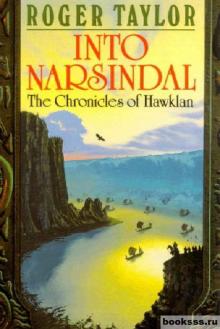 Into Narsindal
Into Narsindal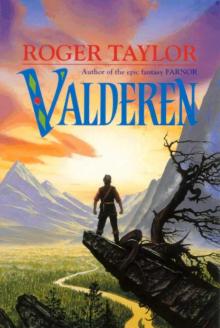 Valderen ft-2
Valderen ft-2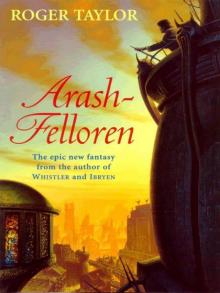 Arash-Felloren
Arash-Felloren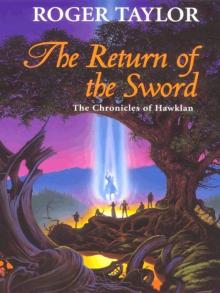 The Return of the Sword tcoh-5
The Return of the Sword tcoh-5![Ibryen [A sequel to the Chronicles of Hawklan] Read online](http://i1.bookreadfree.com/i1/03/26/ibryen_a_sequel_to_the_chronicles_of_hawklan_preview.jpg) Ibryen [A sequel to the Chronicles of Hawklan]
Ibryen [A sequel to the Chronicles of Hawklan]![The Call of the Sword [Book One of The Chronicles of Hawklan] Read online](http://i1.bookreadfree.com/i/03/24/the_call_of_the_sword_book_one_of_the_chronicles_of_hawklan_preview.jpg) The Call of the Sword [Book One of The Chronicles of Hawklan]
The Call of the Sword [Book One of The Chronicles of Hawklan]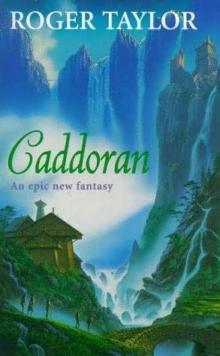 Caddoran
Caddoran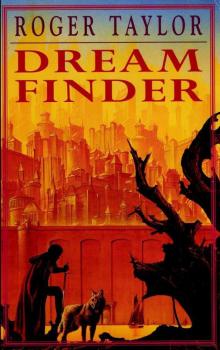 Dream Finder
Dream Finder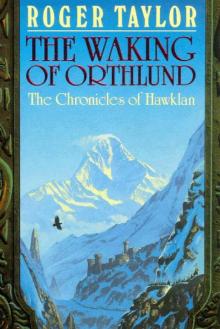 The Waking of Orthlund
The Waking of Orthlund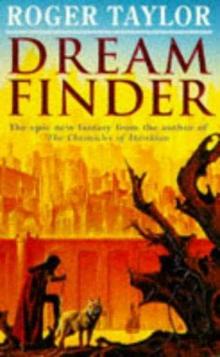 Dream Finder cohs-1
Dream Finder cohs-1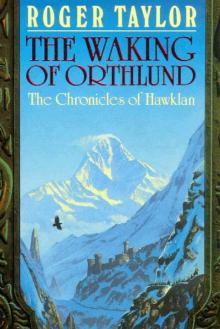 The waking of Orthlund tcoh-3
The waking of Orthlund tcoh-3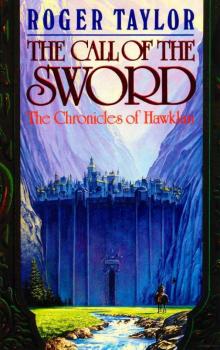 The Call of the Sword
The Call of the Sword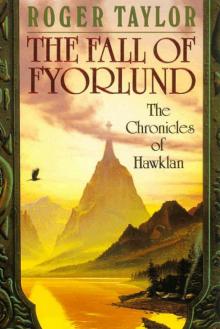 The fall of Fyorlund tcoh-2
The fall of Fyorlund tcoh-2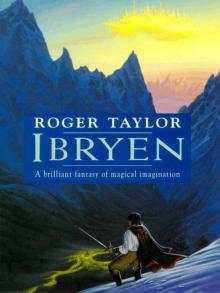 Ibryen
Ibryen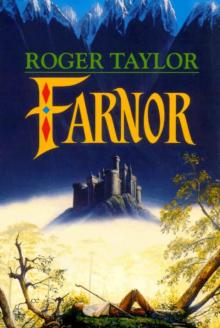 Farnor ft-1
Farnor ft-1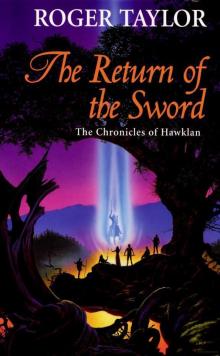 The Return of the Sword
The Return of the Sword![Into Narsindal [Book Four of The Chronicles of Hawklan] Read online](http://i1.bookreadfree.com/i2/04/06/into_narsindal_book_four_of_the_chronicles_of_hawklan_preview.jpg) Into Narsindal [Book Four of The Chronicles of Hawklan]
Into Narsindal [Book Four of The Chronicles of Hawklan]![Valderen [The Second Part of Farnor's Tale] Read online](http://i1.bookreadfree.com/i2/04/05/valderen_the_second_part_of_farnors_tale_preview.jpg) Valderen [The Second Part of Farnor's Tale]
Valderen [The Second Part of Farnor's Tale]![The Fall of Fyorlund [Book Two of The Chronicles of Hawklan] Read online](http://i1.bookreadfree.com/i2/04/08/the_fall_of_fyorlund_book_two_of_the_chronicles_of_hawklan_preview.jpg) The Fall of Fyorlund [Book Two of The Chronicles of Hawklan]
The Fall of Fyorlund [Book Two of The Chronicles of Hawklan]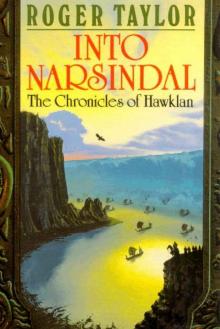 Into Narsindal tcoh-4
Into Narsindal tcoh-4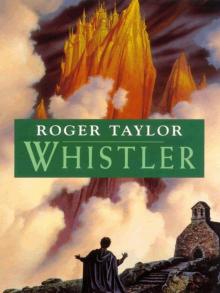 Whistler
Whistler![Whistler [A sequel to The Chronicles of Hawklan] Read online](http://i1.bookreadfree.com/i2/04/12/whistler_a_sequel_to_the_chronicles_of_hawklan_preview.jpg) Whistler [A sequel to The Chronicles of Hawklan]
Whistler [A sequel to The Chronicles of Hawklan]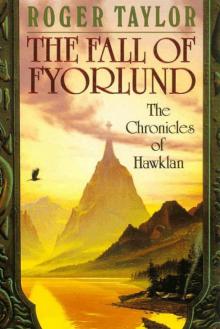 The Fall of Fyorlund
The Fall of Fyorlund![The Waking of Orthlund [Book Three of The Chronicles of Hawklan] Read online](http://i1.bookreadfree.com/i2/04/11/the_waking_of_orthlund_book_three_of_the_chronicles_of_hawklan_preview.jpg) The Waking of Orthlund [Book Three of The Chronicles of Hawklan]
The Waking of Orthlund [Book Three of The Chronicles of Hawklan]